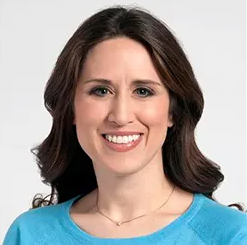You Are What You Eat with Kristin Kirkpatrick - Author, Dietitian, and Wellness & Nutrition consultant at the Cleveland Clinic Wellness Institute
We are excited to share another 2020 Co-Mindfulness Summit presentation with you for this episode of Health Gig. Kristin Kirkpatrick, MS, RD, LD is the lead dietitian and manager of Wellness Nutrition Services at the Cleveland Clinic Wellness Institute in Cleveland, Ohio. She is a best selling author, an experienced presenter, and an award winning dietitian. Listen to how Kristin breaks down time restricted eating, some of the science behind nutrition, and how to lose those last ten pounds.
More On Kristin:
Website: https://www.kristinkirkpatrick.com/
Twitter: @KristinKirkpat
Facebook: @kristinkirkpatrickRD
Instagram: @krissypicks
YouTube: https://www.youtube.com/channel/UCBJmBubdEKzpmV0k9cBFUDQ
FOLLOW HEALTH GIG:
Learn more about BB&R and Achieving Optimal Health Conference by visiting BBRconsulting.us
Show Notes
[03:02] If you've ever wanted to lose weight, it is now, because we know that it is directly tied based on this data to poor outcomes with this new pandemic.
[3:59] Moderate is defined as 7-13 drinks per week. So if you're having just one glass of wine every night, that would be considered moderate drinking.
[4:34] The diet industry provides an industry that forces us to look into perfection, which is the first step in why we fail.
[6:10] The scale tells you the stuff. It doesn't tell you if you're losing fat mass or if you're building muscle mass.
[7:15] Getting back into something that didn't fit a few months ago or a few years ago is probably a little bit more realistic.
[8:01] A big component of being able to lose those last ten pounds is really getting into the mindfulness of hunger.
[8:28] If you limit your consumption of food to eight hours a day, you're much more likely to have benefits and metabolic function and weight loss, specifically fat loss.
[9:00] Eating till you're no longer hungry, not until you're full.
[10:58] There's a difference between counting calories and looking at calorie restriction.
[11:11] Counting calories is more about, OK, I'm on a 1200 calorie diet and I don't really care how I get there, I just know I can't go over 1200 calories. So we stop caring about the quality and we care only about the quantity.
[12:37] Use only supplements when your body is struggling to metabolize food.
[14:12] You want that plate to have a lot of color coming from a lot of plants and that should fill at least half the plate, if not three quarters.
[15:35] Exercise is a really huge component, but it has not been shown in the data to be the main components that we should focus on in terms of weight loss. What has been shown in the data? If you are able to lose weight and you are able to keep your weight off, exercise helps with keeping that weight off and not regaining lost weight.
[16:20] We lose muscle mass every decade of life after we get out of our 20s. So not to say you can't look great, you can. But when your goal is I want to get into my high school jeans, you are starting with that unattainable approach of something that you may never reach.
[17:05] Our body has changed. We have to change along with it and focus on health and focus on what's going to be natural.
[20:06] That's part of intuitive eating. You sit there and you appreciate and think about the structure of how something arrived at the plate and being grateful for that.
[24:21] If we really want to lose weight, knowing what our genetics are and how that could help with weight loss is always advisable.
[25:42] So go into that pantry, go into your fridge, go into the glove compartment wherever you're hiding the food, and go and figure out, OK, what is not food here? What can I get rid of that's really not nourishing my heart, my body, my soul.
[26:15] Even if you don't change your food, simply changing the frequency in which you're eating can help with weight loss.
Thank you for joining us on Health Gig. We loved having you with us. We hope you'll tune in again next week. In the meantime, be sure to like and subscribe to this podcast, and follow us on healthgigpod.com.
“That's part of intuitive eating. You sit there and you appreciate and think about the structure of how something arrived at the plate and being grateful for that.” - Kristin Kirkpatrick
“The diet industry provides an industry that forces us to look into perfection, which is the first step in why we fail.” - Kristin Kirkpatrick
“We lose muscle mass every decade of life after we get out of our 20s. So not to say you can't look great, you can. But when your goal is, ‘I want to get into my high school jeans’, you are starting with that unattainable approach of something that you may never reach.” - Kristin Kirkpatrick
Keywords
#KristinKirkpatrick #IntuitiveEating #TimeRestrictedEating #Nutrition #Diet #ClevelandClinic #Food #Exercise #WeightLoss #TenPounds #Genetics #Body #Supplements #Drinking #Health #Wellness #HealthGig #Pandemic #COVID19 #TriciaReillyKoch #DoroBushKoch #Diet #Exercise #Stress #Wellbeing #CoMindfulnessSummit

